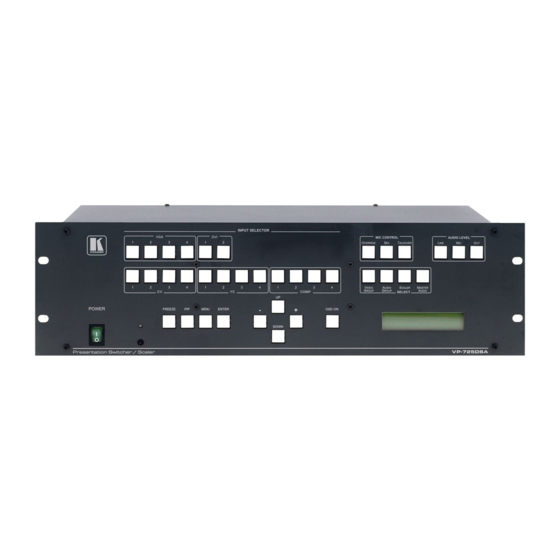
Kramer VP-725DSA Manuals
Manuals and User Guides for Kramer VP-725DSA. We have 1 Kramer VP-725DSA manual available for free PDF download: User Manual
Advertisement
Advertisement

Advertisement
Advertisement